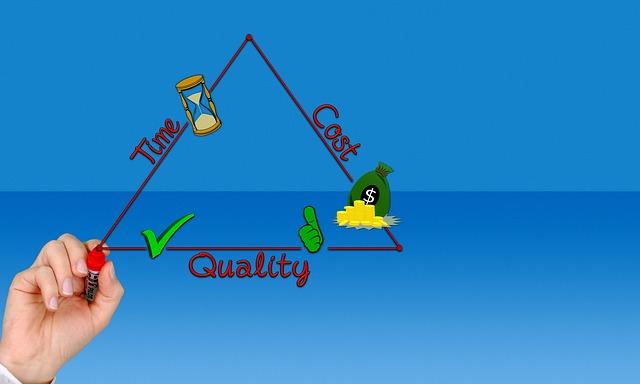In a strategic move set to enhance its product offerings and strengthen its position in the European market, Austria’s Kronospan, a leading manufacturer of wood-based panels, has acquired a wood processing plant in Romania. This notable investment not only marks a pivotal expansion for the company,but it also underscores Romania’s growing importance as a hub for the woodworking industry. With this acquisition, Kronospan aims to diversify its range of products while tapping into the region’s rich natural resources and skilled workforce. As the demand for sustainable and innovative wood solutions continues to rise, this development highlights the accelerating trends within the sector and positions Kronospan to better serve its customers across the continent.
Austrias Kronospan Expands Operations in Romanias Wood Processing Sector
the recent acquisition of a wood processing plant in Romania marks a significant milestone for Austria’s Kronospan, a leading player in the global wood-based materials market. This strategic move not only bolsters their manufacturing capabilities but also enhances their product diversity within the region. With this expansion, Kronospan aims to meet the growing demands of the construction and furniture sectors, offering a more extensive range of engineered wood products. the decision underscores the company‚Äôs commitment to innovation and sustainability, aligning with global trends towards eco-friendly building materials.
As part of the expansion, kronospan plans to introduce an array of products tailored to both local and international markets. Key highlights of the expanded operations include:
- New Product Lines: Enhanced offerings of particleboard, MDF, and laminate flooring.
- Sustainability Initiatives: Investment in eco-efficient production methods and resource management.
- Job Creation: Anticipated growth in local employment opportunities as production scales up.
This investment is expected to solidify Kronospan’s position in Romania’s wood processing industry while fostering economic growth in the region.

Strategic Implications of Kronospans acquisition for Romanian Manufacturing
The acquisition of the wood processing plant by Austria’s Kronospan marks a significant shift in the Romanian manufacturing landscape, leading to several strategic implications.First and foremost, this transaction is likely to enhance operational efficiency through the integration of advanced production technologies and innovative processes. By leveraging Kronospan‚Äôs vast experience and resources, the plant can expect improvements in quality and production capacity, potentially lowering costs and increasing competitiveness within both local and European markets. Furthermore, this move may also facilitate job creation, fostering a skilled workforce and contributing to local economic development.
Additionally, the expansion of Kronospan’s product offerings in Romania may reshape the regional supply chain dynamics. The introduction of a wider range of engineered wood products could allow for diversification of markets, catering to emerging consumer trends that prioritize sustainable building materials. This strategic focus not only aligns with global movements towards sustainability and eco-friendliness but also positions Romania as a crucial hub within the European wood processing industry. In this very way, local suppliers could benefit from increased demand, resulting in a more robust network of manufacturing partnerships and collaborative ventures.

Exploring the Range of Products and innovations from the new Facility
Kronospan’s acquisition of the wood processing plant in Romania marks a significant step in enhancing their offerings in the wood products market.This new facility will enable the company to expand its product line beyond customary offerings, paving the way for a diverse range of innovative solutions. Among the key products that will be developed are:
- engineered Wood Products: These include advanced laminate flooring and furniture components designed for durability and aesthetic appeal.
- Eco-friendly Panels: Products made from sustainably sourced materials, catering to the growing demand for environmentally conscious building solutions.
- Customized Solutions: Tailored wood products that can meet specific customer requirements in both residential and commercial sectors.
The state-of-the-art technology implemented at the new plant will not only enhance production efficiency but also foster innovation in product development. this facility aims to introduce cutting-edge manufacturing processes that minimize waste and optimize resource consumption. A glance at the product range reveals a commitment to quality and sustainability:
| Product type | key Features |
|---|---|
| Laminate Flooring | Durable, scratch-resistant, and easy to install. |
| Furniture Panels | Available in various finishes and customized sizes. |
| Particle Board | Highly versatile and ideal for furniture applications. |

impact on Local Economy and Job creation in Romanias Wood Industry
The acquisition of the wood processing plant by Kronospan has the potential to substantially boost the local economy in Romania. As one of the leading players in the wood industry, Kronospan’s investment signifies a commitment to leveraging Romania’s rich timber resources, which could translate to an increase in production capabilities. This expansion is highly likely to create new revenue streams not only for Kronospan but also for local suppliers and businesses associated with the timber and furniture industries.Key impacts include:
- Increased investment in local infrastructure – Enhancements in transportation and logistics networks may occur to support expanded operations.
- Boost in local supply chains – Demand for raw materials may surge, benefiting local forest owners and timber merchants.
- Diversification of products offered – With a broader product lineup, local businesses could find new markets and opportunities.
Moreover, the job creation aspect of this acquisition cannot be overlooked. The expansion of Kronospan’s operations is expected to lead to the hiring of skilled and unskilled workers,thus addressing local unemployment issues.In addition to direct employment at the plant, ancillary jobs may arise in related sectors, fostering a more robust community economy. The projected impacts may include:
| Impact Area | Projected Outcome |
|---|---|
| Job Creation | 500+ new jobs |
| Supply Chain growth | 30% increase in local suppliers |
| Economic Growth | Projected 10% boost in local GDP |
Sustainability Challenges and Opportunities in Kronospans Business Model
Kronospan’s recent acquisition of a wood processing plant in Romania not only marks a significant expansion of its product range but also highlights the critical sustainability challenges faced by the wood industry. As the demand for sustainable materials increases, Kronospan must navigate a landscape fraught with complexities‚ÄĒranging from responsible sourcing of raw materials to minimizing environmental impact during production. The company is now tasked with ensuring that its operations do not contribute to deforestation or habitat degradation, while also seeking to lower greenhouse gas emissions through innovative manufacturing practices.
However, this transition presents unique opportunities for Kronospan to position itself as a leader in sustainable practices within the industry. By investing in environmentally-friendly technologies and increasing the use of reclaimed and recycled materials, the company can enhance its reputation and appeal to eco-conscious consumers. key strategies may include:
- Innovative Product Development: Create new lines of products made from sustainable materials.
- Collaboration: Partner with environmental organizations to promote responsible forestry.
- Clarity: Adopt a traceability system for wood sourcing to assure customers of ethical practices.
Through these initiatives, Kronospan not only addresses current sustainability challenges but also positions itself to capitalize on the growing market for green products, turning potential obstacles into avenues for growth and innovation.

Recommendations for Stakeholders to Enhance Collaboration and Growth
To foster a culture of collaboration and drive sustainable growth, stakeholders in the wood processing industry should consider the following strategies:
- Strengthen Partnerships: Building strong alliances between manufacturers, suppliers, and local communities can help create a more resilient supply chain. Regular networking events and workshops can facilitate knowledge sharing and innovation.
- Invest in Technology: Embracing advanced technologies such as automation and artificial intelligence can enhance production efficiency and product quality. Collaborative projects between tech firms and wood processors can lead to groundbreaking developments.
- Focus on Sustainability: Implementing eco-friendly practices not only benefits the habitat but also appeals to a growing market of environmentally conscious consumers. Stakeholders should work together to develop sustainable sourcing practices and adopt circular economy principles.
- Engagement with Local Governments: Many industries benefit from support in the form of grants or favorable regulations. Engaging with local authorities can provide stakeholders with the resources needed to grow and innovate.
A collaborative approach to workforce development is essential.To address skill gaps and prepare for future industry demands, stakeholders can:
- Enhance Training Programs: Partnering with educational institutions to create tailored vocational programs can definately help develop a skilled workforce that meets the industry’s needs.
- Promote Knowledge Transfer: Experienced workers can mentor newcomers through structured apprenticeship programs. This exchange of expertise is crucial for maintaining high standards and innovation.
- Encourage Employee Mobility: Creating pathways for employees to move between companies can foster a more versatile workforce, allowing for the transfer of ideas and innovations across organizations.
| Collaboration Area | Key Action |
|---|---|
| Partnerships | Organize networking events |
| Technology | Invest in new tools |
| Sustainability | Implement eco-friendly initiatives |
| Government Engagement | Seek support and funding |
| Workforce Development | Create training initiatives |
The Way Forward
Kronospan’s acquisition of the wood processing plant in Romania marks a significant expansion for the Austrian company, enabling it to enhance its product portfolio and strengthen its presence in Eastern Europe. This strategic move not only underscores Kronospan‚Äôs commitment to growth but also highlights the potential for job creation and economic development within the Romanian timber industry. As the company integrates its operations and leverages local resources,stakeholders will be keenly observing how this investment impacts both the market dynamics and the sustainable practices in wood processing.Moving forward,the collaboration between Kronospan and Romanian enterprises may set a precedent for future investments in the region,ultimately contributing to a more vibrant and competitive industry landscape.
















